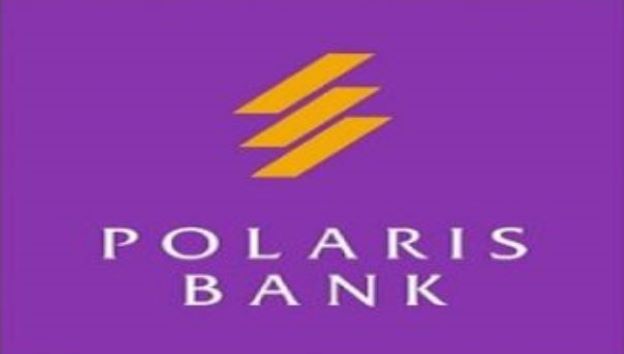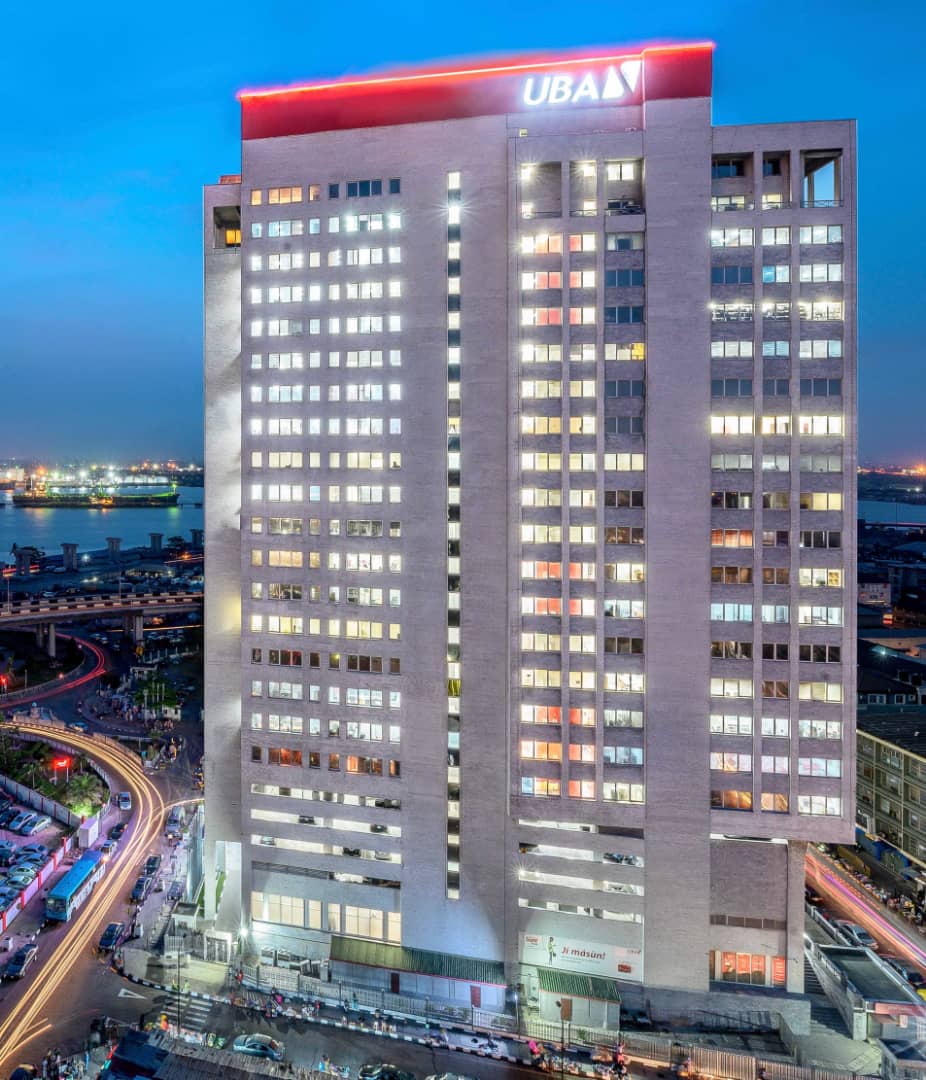E-Financial
Polaris Bank Provides Free Breast Cancer Screening for 250 Nigerian Women

Polaris Bank, Nigeria’s leading digital retail commercial Bank, has announced the sponsorship of free breast cancer screening for 250 Nigerian women, in commemoration of 2024 October Breast Cancer Awareness Month.

Polaris Bank
This initiative underscores Polaris Bank’s unwavering commitment to women’s health and is part of the Bank’s long-standing efforts and intervention to support breast cancer awareness behavioral change, advocacy and prevention in Nigeria.
For over a decade, working with its NGO Partner, Care Organisation Public Enlightenment (C.O.P.E), Polaris Bank has been a leader in breast cancer advocacy, behavioral change communication, funding support and the screening of more than 20,000 women across the country.
This year’s sponsorship further supports the Bank’s mission to ensure that more women, particularly those with limited access to healthcare, have the opportunity for early detection, which is vital for successful treatment and survival.
“Breast cancer continues to pose a significant threat to women, not just in Nigeria, but globally.
“As a responsible corporate organization, we understand the importance of early detection, and we are committed to empowering women with access to this life-saving screening.
“Our partnership with C.O.P.E. is integral to making this service accessible to more women,” the Bank stated.
Aligned with United Nations (UN) Sustainable Development Goal 3 (SDG 3), which focuses on preventing needless suffering from preventable diseases and premature death, Polaris Bank is taking a crucial step by funding free breast cancer screenings for women in underserved regions.
According to the World Health Organization (WHO), early detection of breast cancer increases survival rates and reduces treatment costs, making Polaris Bank’s initiative a vital contribution towards improving health outcomes and reducing breast cancer-related mortality in Nigeria.
This year’s screening programme reflects Polaris Bank’s broader Corporate Social Responsibility (CSR) agenda, which focuses on key areas like health, education, and youth/women empowerment; and community development.
The Bank has consistently invested in causes that positively impact the lives of Nigerians, and this screening effort is yet another testament to its commitment to improving public health.
In addition to the screenings, the Bank continues to champion breast cancer awareness through education, advocacy, behavioural change and outreach, encouraging women to engage in regular self-examinations and seek medical attention promptly. This holistic approach to advocacy aims to build a healthier society where early detection becomes the norm.
The 2024 free screening intervention, marks another milestone in the fight against breast cancer, as the brand remains at the forefront of efforts to combat the disease, ensuring that Nigerian women have access to the critical health resources they need.
In over decade, Polaris Bank’s footprint in the fight against cancer in Nigeria, has been described by commentators as phenomenal:
In collaboration with the Care Organisation Public Enlightenment (C.O.PE) Foundation, Polaris Bank has sponsored treatment for over 30 indigent cancer patients and provided free breast cancer screenings for over 20,000 women, including its own female staff and customers.
The Bank has also donated three state-of-the-art breast cancer screening machines, improving the quality of diagnosis and clinical practices nationwide. To further raise awareness, Polaris Bank organized a 10-kilometer walk with over 2,500 participants to draw attention to the breast cancer crisis.
The Bank, as part of its ongoing commitment to health awareness and community support, previously organized an impactful event for breast cancer survivors themed ‘Celebrating Our Pink Heroes’ at the Sheraton Hotel, Ikeja, Lagos.
The event brought together over 50 survivors and featured music, networking, and educational and experience sharing sessions. Same exercised was repeated just last year Oct with in Ikoyi with added spice where another 50 breast cancer survivors were treated to a full spa and wellness session involving sauna bath, manicure, pedicure, healthy meals, movie and experience sharing sessions.
It provided a meaningful platform for survivors to share their experiences, raise awareness about breast cancer, survival techniques and encourage positivity among their community.
The initiative also sought to educate the public and demystify myth by reducing the stigma associated with the cancer, reinforcing Polaris Bank’s dedication to social responsibility and health advocacy.
The Bank had in making life more beautiful to breast cancer survivors had in 2019, presents over a 100 units of Prosthetic bra to cancer survivors registered under the Bank’s NGO Partner @copebcnigeria C.O.P.E.
Polaris Bank, in partnership with C.O.P.E, hosted a special full spa outing for some breast cancer survivors. The event strengthened the bond between the Bank and Cancer Survivors as it offered therapeutic services such as; steam baths, massages, manicures, pedicures, and a healthy meal, along with a health talk. Experiences were also shared amongst the survivors
In addition, Polaris Bank part financed the establishment of arguably sub-Saharan best Cancer Hospital, Marcelle Ruth Cancer Centre and Specialist Hospital (MRCC).
Overall, the Bank’s initiatives reflect its dedication to responsible business practices, integrating social and environmental considerations into its operations, and ensuring a net positive impact on both society and the environment.
Women interested in taking part in the free screening exercise should visit our website or click the link below, or follow us on our social media pages @polarisbankltd for more information and registration details: https://www.polarisbanklimited.com/breast-cancer-screening-2024/ and thereafter visit the C.O.P.E. Center at 39B, Adeniyi Jones Avenue, Ikeja, Lagos, Nigeria. Screening is scheduled for third and fourth Saturday of October, 2024 and every third Saturday of every other month.
Polaris Bank was adjudged Nigeria’s Digital Bank of the Year in 2023, 2022 and 2021 in Business Day’s Banks and Other Financial Institutions (BAFI) Awards.
E-Financial
UBA Expands to More African Cities, Stamps Footprint in Saudi Arabia

United Bank for Africa (UBA) has announced strategic expansion into more African countries even as it plans to open a new office in Saudi Arabia, marking a significant milestone in its mission to connect Africa with key global markets.

Oliver Alawuba, GMD/CEO, UBA group,
This emerged during the Group’s Half Year Business Review held at its global headquarters in Lagos, where Oliver Alawuba, group managing director/CEO, UBA group, met with senior executives overseeing UBA’s 24-country footprint.
The meeting reaffirmed the bank’s pan-African strategy while outlining bold new steps into global markets.
Alawuba highlighted UBA’s continued growth outside Nigeria, with more than 51.7% of Group revenues now generated from its ex-Nigerian operations.
He described the Saudi expansion as a move that positions UBA to support cross-border trade, attract investment flows, and better serve the African diaspora.
“UBA’s vision is clear—we are building a truly global institution anchored in Africa, but serving customers across continents. Our entry into Saudi Arabia signals confidence in new opportunities and commitment to supporting economic connectivity between Africa and the Middle East,” he said.
The Saudi expansion adds to UBA’s international presence, which currently includes the United Kingdom, United States, France, and the United Arab Emirates. Alawuba also disclosed that the bank is upgrading its operating licence in France to further strengthen its European operations.
“In Europe, UBA has operations in the United Kingdom and is upgrading its licence in France, expanding its capacity to serve cross-border trade, investment flows, and the African diaspora, complementing our over 40-year presence in New York,” Alawuba noted.
Since launching its pan-African journey with an entry into Ghana in 2004, UBA has expanded rapidly across 20 African countries, establishing itself as a leading driver of financial inclusion, innovation, and regional integration.
E-Financial
Ecobank Plans to Raise $250m Capital Through Private Placement

Ecobank Transnational Incorporated announced its plan to raise up to $250m in Additional Tier 1 capital through a private placement of contingent convertible notes.

In a statement filed on the Nigerian Exchange Limited recently, the capital raise was approved by shareholders at the company’s Extraordinary General Meeting held in Lomé, Togo. The private placement offer was launched on July 9 and will run for ten days.
“Following the approval of the shareholders at its Extraordinary General Meeting held on May 28, 2025, in Lomé, Togo, to raise up to $250m in additional Tier 1 capital qualifying instruments via a private placement of contingent convertible notes, Ecobank Transnational Incorporated announces the launch of the AT1 effective July 9, 2025, for ten days. Renaissance Capital Africa has been appointed as the transaction adviser to ETI.”
The move is an initiative aimed at strengthening Ecobank’s capital adequacy, enhancing financial resilience, and supporting its long-term growth ambitions across its diversified pan-African banking platform.
Additionally, Madibinet Cisse, Ecobank’s Company Secretary, said, “This proposed capital raise represents a critical step in our efforts to fortify the bank’s financial foundation and support sustainable growth across Africa.”
It would be recalled that Ecobank Transnational Incorporated, the parent company of the Ecobank Group, has raised an additional $125m through a Eurobond tap, bringing the total size of its 2029 notes to $525m.
E-Financial
EFCC Recovers Funds Lost to CBEX Fraud

Ola Olukoyede, chairman, Economic and Financial Crimes Commission (EFCC), has announced that the body has recovered lost funds from the CBEX fraud scheme.

Olukoyede did not announce the amount recovered, but he assured Nigerians that the EFCC is taking action against the promoters of the scheme.
The EFCC Chairman emphasised that the suspects found are facing prosecution.
“We have found a lot of people culpable. Those who promoted that scheme are within our jurisdiction and have been arrested. So, at this moment, they are being prosecuted. And we can also say that money has been recovered, even though the process is still ongoing for us to finally forfeit it,” he said.
Olukoyede also urged Nigerians to exercise caution when investing their resources into online platforms.
“Ponzi schemes remain one of the most pervasive threats facing unsuspecting investors. The CBEX case is a clear example. We all remember the outcry that followed the collapse of the scheme, but these unfortunate situations are preventable. Nigerians must begin to conduct due diligence before committing their resources to such platforms,” Olukoyede said.
He also stressed that the body remains committed to fishing out the culprits and recovering the lost funds.
“It was only when the bubble burst that people wanted EFCC to perform magic and recover their money. In the case we investigated in Lagos, which we dubbed Operation Flush, we arrested a large number of foreigners involved in various cybercrimes, including CBEX. I want Nigerians to know that as of today, we have secured close to 150 convictions. Some of them are already serving their jail terms. And when they are through with that, we are going to send them back to where they came from. So we are monitoring them,” he added.
He urged the public to stay vigilant, assuring them that the body will see the case to the end.
“We are no longer the EFCC that drops cases halfway. Whatever we start, we will finish. Nigerians should trust us and believe in our capacity to do justice. Some of these cases are complex and may require cross-border investigations, but we are up to the task,” he said.

 Telecom2 days ago
Telecom2 days agoNCC Speaks of Plans to Secure Telecom Infrastructure Nationwide

 General News2 days ago
General News2 days agoAirtel Nigeria Drives BFSI and Utility Sector Innovation with Industry-wide Workshop

 Telecom2 days ago
Telecom2 days agoAfrica’s Lawmakers Commit to Strengthening AI, Digital Health and Smart Manufacturing Frameworks

 E-Financial2 days ago
E-Financial2 days agoUBA Expands to More African Cities, Stamps Footprint in Saudi Arabia

 General News2 days ago
General News2 days agoEFCC Says Corrupt Politicians are Using Crypto Wallets to Launder Money

 E-Financial2 days ago
E-Financial2 days agoEcobank Plans to Raise $250m Capital Through Private Placement

 News2 days ago
News2 days agoIHS Nigeria, UNICEF Donate Oxygen Plant to Bridge Health Gap in River State

 Telecom2 days ago
Telecom2 days agoNITDA DG: AI Is an Ally for Innovation, Not an Enemy






















